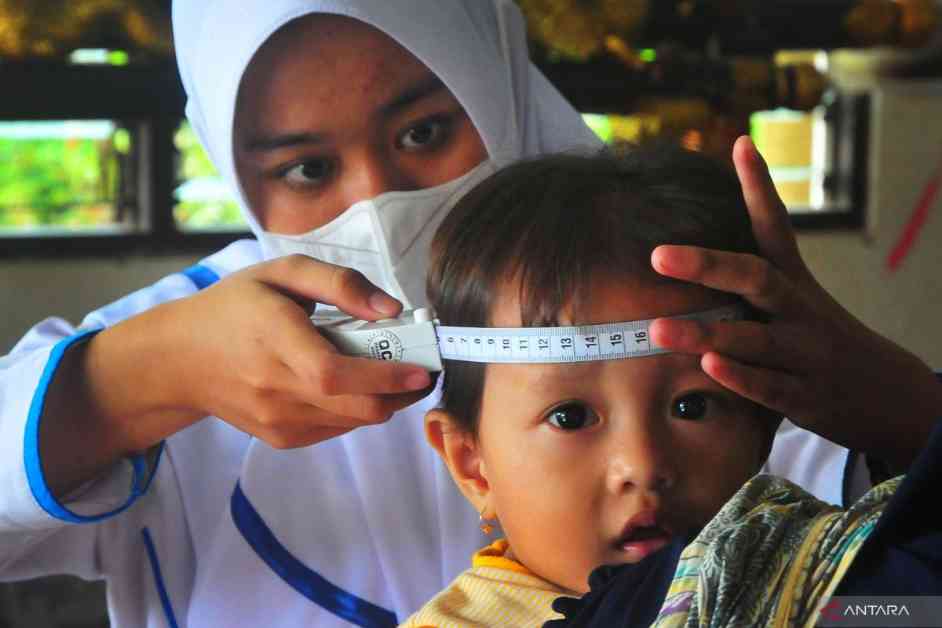Indonesia’s Ambitious Goal: Combatting Childhood Stunting
Bandung, Indonesia – In an ambitious move to prioritize the health and well-being of its youngest citizens, the Indonesian government has set a groundbreaking target to reduce childhood stunting prevalence to 14.2 percent by the end of the 2025–2029 National Medium-Term Development Plan (RPJMN).
The Road to Transformation: A Step-By-Step Approach
Amich Alhumami, the Deputy for Human, Community, and Cultural Development at the Ministry of National Development Planning, unveiled this bold initiative during a recent retreat for officials. He emphasized that the immediate goal for this year is to lower the prevalence rate to 18.8 percent, a significant improvement from the previous year’s 21.5 percent.
The strategy for the forthcoming years involves a targeted annual decline of 1.5 to 2 percentage points, culminating in the ultimate objective of achieving a stunting prevalence rate of 14.2 percent. Alhumami underscored the pivotal role of the government’s Free Nutritious Meals (MBG) program in combatting this pressing issue.
Empathy in Action: A Personal Touch
As a mother of two young children, I can deeply empathize with the challenges that families face in ensuring their children receive adequate nutrition for healthy growth and development. It’s heartening to see the Indonesian government taking proactive steps to address childhood stunting through initiatives like the Free Nutritious Meals program.
The commitment to reducing stunting prevalence not only reflects a dedication to improving public health but also underscores a fundamental belief in the importance of investing in the future generations of Indonesia. By prioritizing the nutritional needs of pregnant women, breastfeeding mothers, and toddlers, this program serves as a beacon of hope for families striving to provide the best start in life for their children.
Community Collaboration: A Unified Effort
Minister of Population and Family Planning Wihaji echoed the sentiment of collective responsibility by emphasizing the critical role of leveraging the MBG program to meet the nutritional requirements of children, particularly during the crucial first 1,000 days of life. This underscores the government’s holistic approach to addressing stunting and ensuring the well-being of young Indonesians.
The formation of family support teams by the Ministry of Population and Family Planning, as highlighted by Budi Setiyono, signifies a concerted effort to work hand in hand with the National Nutrition Agency in fulfilling the mandates set forth by President Prabowo Subianto. The MBG program, described as a social protection instrument, stands as a testament to the government’s commitment to enhancing the quality of life for all its citizens.
In conclusion, the journey towards reducing childhood stunting prevalence in Indonesia is not just a statistical target but a testament to the nation’s dedication to securing a healthier, brighter future for its youngest members. As we move forward, let us continue to support and champion initiatives that prioritize the well-being of children and pave the way for a flourishing society.






















